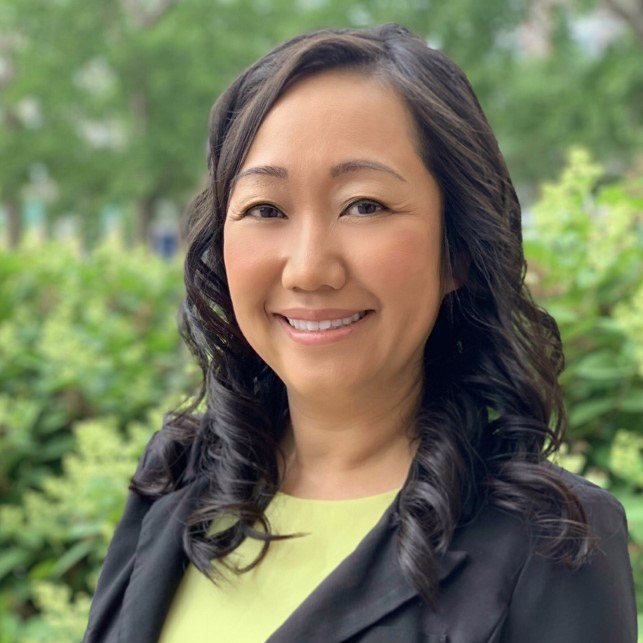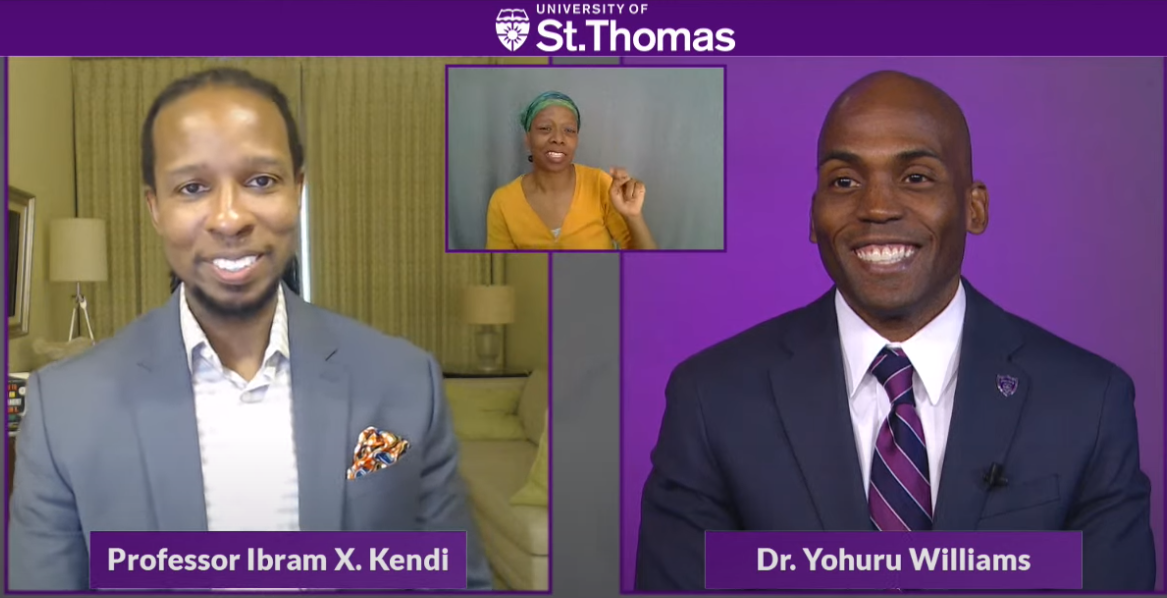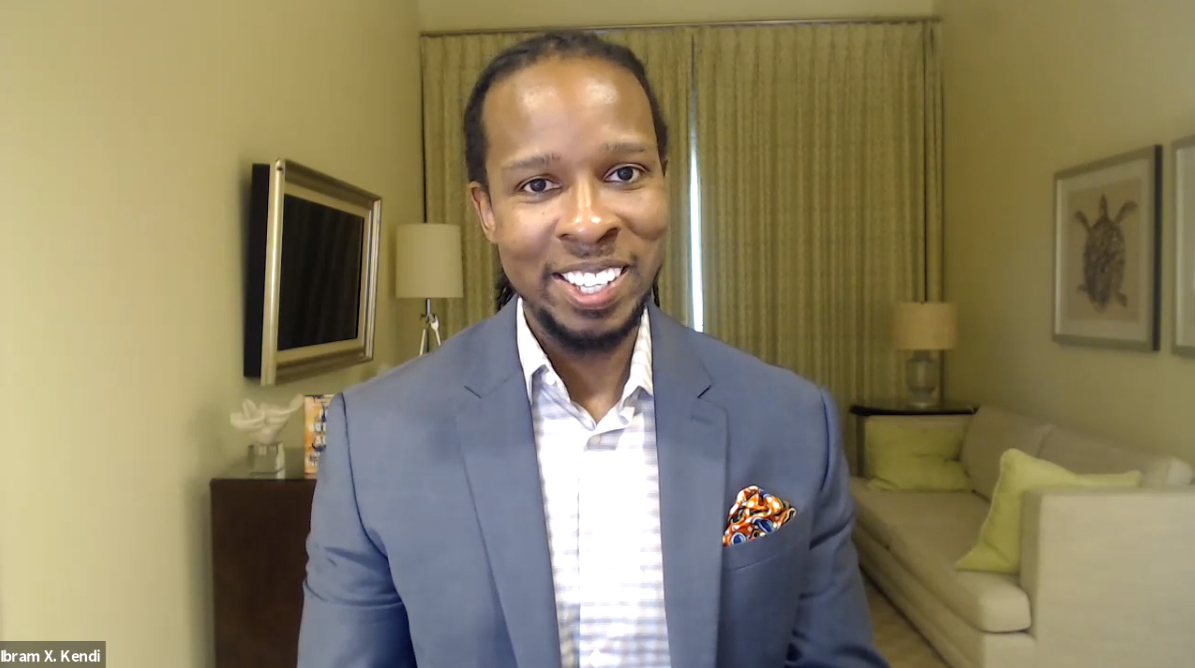The opposite of racist isn’t “not racist.” It is actively being an antiracist. That’s the message approximately 1,700 registered attendees of the Equity in Action: Cultivating Antiracist Universities conference heard weaved throughout the various workshops, breakout sessions and the riveting keynote address of guest speaker Professor Ibram X. Kendi, author of the bestseller How to Be An Antiracist.
Kendi said that at any given time an individual can engage in racist behavior and be “not racist” in another matter, while being actively antiracist on some other issues. To strive toward being an antiracist society, “we have to continuously interrogate ourselves,” he said.

Kha Yang
“Antiracism work is a key component of the St. Thomas, DE&I plan,” said Kha Yang, vice president for inclusive excellence, who heads the Office for Diversity, Equity and Inclusion (ODEI) at the University of St. Thomas, which sponsored the inaugural conference, which reached its full attendance capacity.
Antiracism efforts are at the root of St. Thomas’ Catholic-centered mission. Antiracism and Kendi’s concept of identifying, naming and dismantling racism aligns with one way that St. Thomas can start to dismantle racism, said Yang.
Fireside Chat with Kendi
Kendi kicked off the conference in a keynote address followed by a fireside chat hosted by Dr. Yohuru Williams, Distinguished University Chair, professor of history and founding director of the Racial Justice Initiative at St. Thomas. Williams, who asked several questions of Kendi, said that he hoped conference attendees would learn from the panels and “hopefully begin the process of doing this work together, where we can create the kind of society that we’d all like to live in: One where justice and equity are the norm.”

Here are highlights from the fireside chat with Williams and Kendi, combined with edited remarks from the keynote address.
Williams: There are students on campus all across the country asking questions about what they can do to forward antiracist work on the colleges and universities where they are studying. What's your message to student activists in this moment and how can they move that work forward?
Kendi: I would first encourage them to recognize that many of the gains that exist on college campuses today, whether it's ethnic studies more broadly or Black studies or diversity officers or even the existence of faculty of color or Black history courses, largely came out of student activism and student organizing. It’s important for students to recognize their history of struggle and their tradition of success. A lot of that success came down to organizing as opposed to mobilizing people. In my book, How to Be an Antiracist, I discussed the distinction between mobilizing and organizing. You can mobilize a group of people for a rally on a single day to speak out against police brutality, but it's another thing to bring those people into an organization where you build a sustained campaign against police brutality, and that's what I want to encourage students to do – to organize.
Williams: You talked in your book about antiracism as a journey. If you had to give someone a high-level definition of what antiracism means, to those who have not read the book yet, what does that look like, the process of becoming an antiracist without antiracist thinking?
Kendi: Antiracism is a powerful collection of policies that lead to racial equity and are substantiated by ideas of racial equality. When we get to a point that there's no such thing as one particular racial group being more likely to be impoverished than another racial group and that’s due to policies that ensure equal opportunity and then when people see that equity I don't think Black people should be more poor. 'I don’t think Black people are lazier than white people. I think we’re all equal.' So people see that there are antiracist ideas that allow them to expect equity. To be antiracist is more of a journey. It's not a destination.
"The centerpiece of how to be an antiracist university would be that university is being a force for racial justice and equity in its community." - Ibram X. Kendi
Williams: I think there is some exhaling that took place with this verdict in the [Derek] Chauvin trial [about George Floyd’s murder], this assumption that somehow we've crossed a divide. What's your thinking on this point with regard to antiracism in policing and what needs to happen in order for that to really gain traction in so that we see the real change and not just another flashpoint?
Kendi: I think that with this single case, which certainly was a landmark case, I do think those of us who are engaged in this struggle should recognize and appreciate victories and find joy in victories, but at the same time, within 24 hours of Derek Chauvin's conviction, police had killed six people across the United States, including Ma’Khia Bryant in Columbus, Ohio. To me, I think that obviously we have to create an environment, a community where no one is being killed by police. The Newark police force didn't shoot a single shot last year and certainly others are calling for complete re-imagining of safety in general.
We have to start thinking about the roots of violent crime. Too long in this country Americans have been misled and have been manipulated into believing that certain groups, particularly Black and brown folks, are dangerous, either by nature or by nurture and therefore there has been this belief that we need this border wall of policing to protect against “those people” and if somehow the border wall is lifted, then there’ll be this flood of violence and crime. I just don't think people realize how much they have bought into that narrative and how much that narrative is racist.
Williams: What does an antiracist university look like?
Kendi: I think the centerpiece of how to be an antiracist university would be that university is being a force for racial justice and equity in its community. So, in building an antiracist university, we have to build and ensure that a university is building antiracist research. That researcher who does not want to use race as a variable misses racial disparities and inequities and therefore that researcher misses the ways in which racism is a part of the problem that they are studying. [Antiracist research is about] not assuming that groups of people are bad, but assuming that there could be something wrong with policies.
"To not see color and to not see race is to not see racism." - Ibram X. Kendi
“Regardless of where someone might be in their antiracism journey, my hope is that all of us can walk away from this conference feeling informed, inspired and energized to take individual actions toward fighting against racism," said Yang, the brainchild of the Equity In Action conference. She added: "This conference is just a starting point in our long journey. We are far from an equitable world and there is much work ahead. Leave your comfortable zone and engage in uncomfortable dialogues. It is in those moments that we can challenge ourselves to think and act differently toward creating lasting change."







